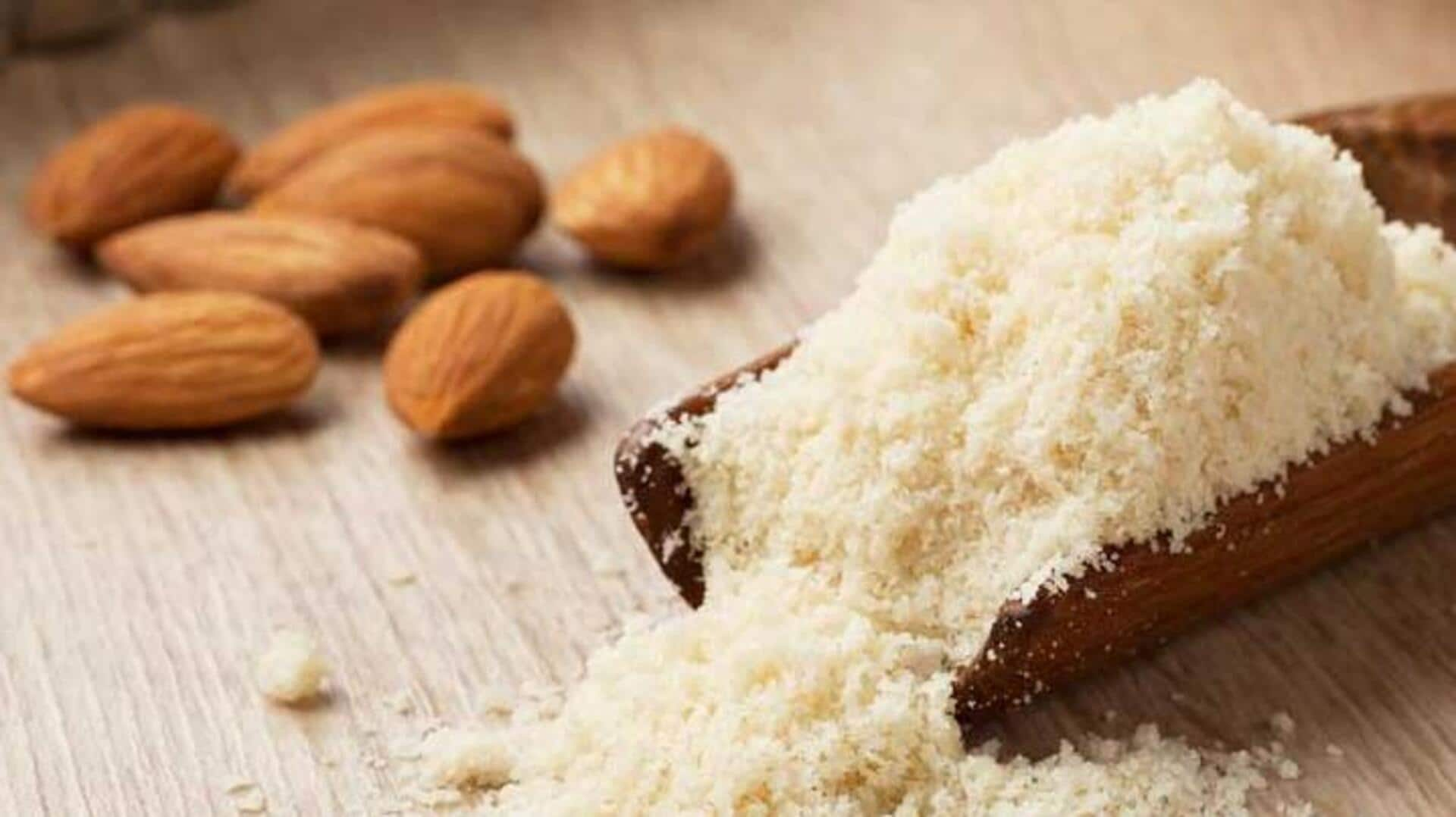
Top gluten-free vegan flours for baking
What's the story
Exploring gluten-free vegan flours can open a world of possibilities for those with dietary restrictions or preferences.
Not only do these flours cater to gluten intolerance, but they also align with vegan principles, making them versatile options for baking.
From enhancing the texture of baked goods to adding unique flavors, these flours offer a range of benefits.
Here are five popular gluten-free vegan flours that can be used as staples in your baking endeavors.
Nutty choice
Almond flour: A nutty alternative
Almond flour, finely ground almonds, is known for its rich, nutty flavor.
It's an excellent source of protein and healthy fats, making it a nutritious choice for baking.
Due to its moist texture, almond flour works well in cookies, cakes, and muffins.
However, it may require additional binding agents like flaxseed meal or chia seeds when used in recipes that need structure.
Fiber-rich option
Coconut flour: High fiber content
Coconut flour, made from dried coconut meat, is extremely high in fiber.
This flour absorbs more liquid than others, which is why recipes generally need some tweaking in terms of liquid ingredients.
Its mild coconut flavor lends a subtle sweetness to baked goods like pancakes and bread.
Since it's pretty dense, mixing coconut flour with other gluten-free flours can give better results.
Versatile choice
Rice flour: Versatile baking staple
Rice flour is also a staple in most gluten-free kitchens due to its versatility and neutral flavor.
It can be used alone or mixed with other flours for a range of baked goods, from bread and cakes to pastries.
While rice flour offers a light texture, you may need additional binding agents such as xanthan gum or guar gum to enhance elasticity in doughs.
Protein boost
Chickpea flour: Protein-packed option
Chickpea flour, or gram or besan flour, is a great protein-packed alternative for gluten-free vegan baking.
Its earthy flavor goes well with savory dishes such as flatbreads and crackers, but it can even be used for sweet treats when balanced out with other ingredients.
Chickpea flour makes recipes dense; hence, mixing it with lighter flours could improve the texture of the final product.
Earthy taste
Buckwheat flour: Earthy flavor profile
Buckwheat flour has an earthy taste that complements sweet and savory dishes alike.
Although its name suggests otherwise, buckwheat doesn't have any wheat proteins, thus being naturally gluten-free.
This nutrient-rich option works especially well when mixed into pancake batters, waffles, and quick breads.
To tone down strong flavors, try blending buckwheat alongside milder tasting options such as rice or almond-based alternatives.